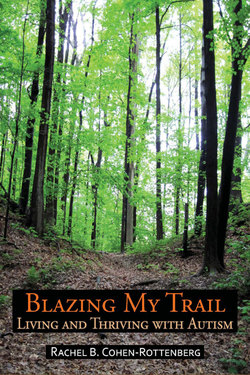Читать книгу Blazing My Trail: Living and Thriving With Autism - Rachel B. Cohen-Rottenberg - Страница 8
На сайте Литреса книга снята с продажи.
Heightened Sensory Sensitivity
ОглавлениеAs a person with autism, I found that all of the symptoms that attend benzodiazepine use were exacerbated by the impact of interdose withdrawals on my sensory functioning.
By early 2009, I was more sensory sensitive than I had ever been in my life. Sometimes, my skin felt like tissue paper; at other times, loud noises were enough to send me into physical pain that took me days to recover from. Light seemed very bright, and I began wearing sunglasses, even on winter days. I became overwhelmed by this sudden severe spike in sensitivity, and every foray into the outside world took all the courage and energy I could muster. My level of functioning decreased significantly. Most days, I just stayed home.
I couldn’t figure out what was happening.
Then, I read Dr. Ashton’s findings on benzodiazepine withdrawal and sensory sensitivity. She notes that “a characteristic feature of benzodiazepine withdrawal is a heightened sensitivity to all sensations—hearing, sight, touch, taste and smell. When extreme, these sensations can be disturbing.” She describes one woman needing to stop all the clocks in her house because their ticking seemed unbearably loud. Others have had to wear dark glasses because ordinary light seemed “dazzlingly bright.” (ibid, Chapter III)
I’d finally found an answer to the question of why my sensory sensitivities had increased so dramatically in a relatively short period of time: the daily interdose withdrawals were sending my already acutely sensitive system into overdrive.
After four years of benzodiazepine use, I could barely socialize at all. I felt very isolated and I suffered from severe levels of stress that were lowering my levels of functioning. As I learned about the havoc that these drugs wreak, I considered myself lucky to be tapering off them before they stole any more years from my life.
